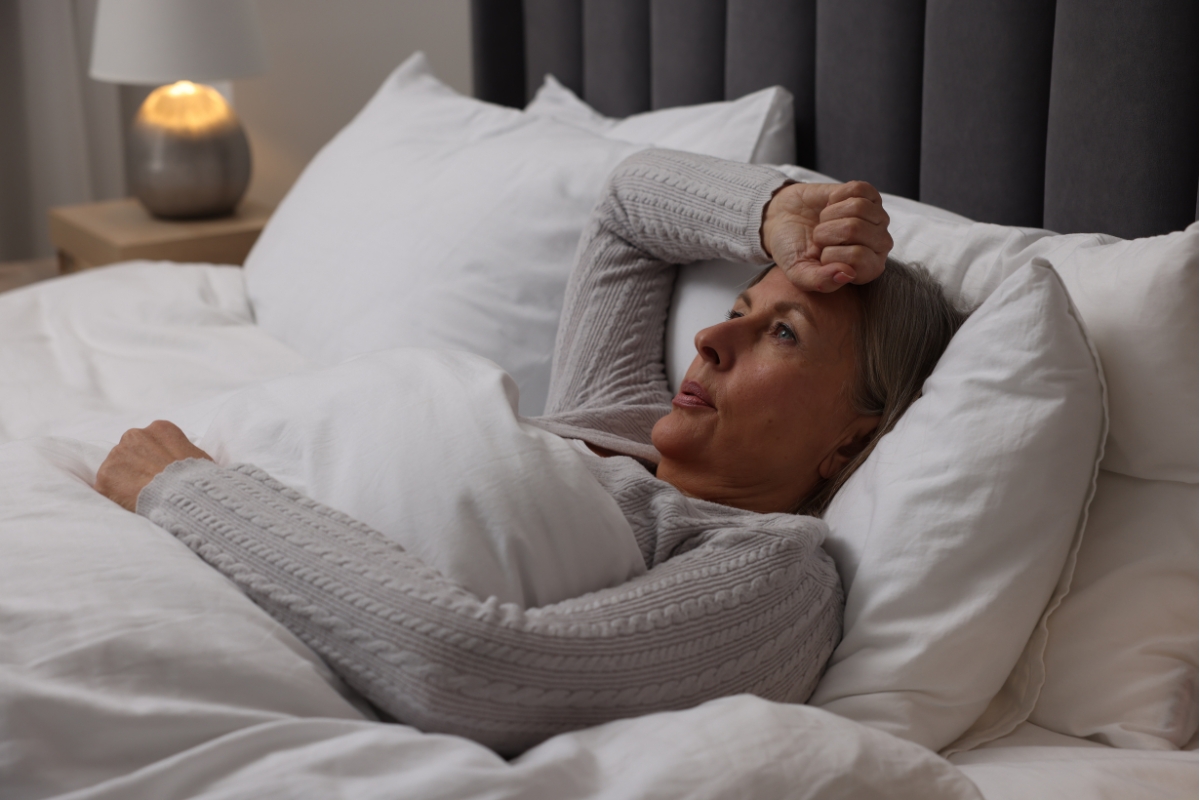
Exploring the connection between menopause and sleep
Menopause is a natural phase of life, but the changes it brings can significantly impact sleep quality. From night sweats to snoring and even sleep apnoea, disrupted rest is a common struggle. Understanding the link between menopause and sleep can help you find solutions that work for you, improving not only your nights but your overall well-being.
How menopause affects sleep
During menopause, the body produces less oestrogen and progesterone — hormones that play a crucial role in sleep regulation. This shift can contribute to a range of sleep disturbances, including insomnia, snoring and restless legs syndrome. As oestrogen levels drop, the brain becomes more sensitive to temperature changes, which can trigger night sweats and frequent wake-ups. At the same time, hormonal imbalances can lead to increased anxiety and mood swings, making menopause and sleep quality a challenging combination.
Weight gain is another common symptom of menopause, and it can contribute to snoring and sleep apnoea. Extra weight around the neck can put pressure on the airway, making it more likely to collapse during sleep. This can lead to loud snoring or even pauses in breathing, known as obstructive sleep apnoea (OSA). If left untreated, OSA can cause daytime fatigue, headaches and an increased risk of heart disease.
Menopause and snoring
Many people start snoring during menopause, even if they never snored before. This can be due to:
- A decrease in muscle tone in the throat, making it more likely to collapse.
- Increased nasal congestion caused by hormonal changes.
- Weight gain, which can narrow the airway and restrict airflow.
The Snoreeze range is designed to tackle the root cause of different types of snoring. If nasal congestion is the issue, Snoreeze Nasal Spray, Nasal Strips or Nasal Dilator can help open up the airways. If you snore regularly, Snoreeze Throat Spray or Oral Strips can provide relief by lubricating the throat and reducing vibrations.
The link between menopause and sleep apnoea
Snoring isn’t just disruptive — it can also indicate an underlying sleep disorder. If your snoring is particularly loud or accompanied by gasping for air, it may be a sign of sleep apnoea.
The risk of developing obstructive sleep apnoea increases after menopause. In fact, research suggests that up to 47% of people experience OSA post-menopause. The drop in oestrogen and progesterone can weaken airway muscles, making it more likely that the airway will collapse during sleep. This can lead to repeated breathing interruptions, which cause oxygen levels to drop and disrupt sleep.
If you’re experiencing loud snoring, morning headaches, or excessive daytime fatigue as part of your menopause and sleep struggles, it may be worth speaking to a healthcare professional. Treatment options range from lifestyle changes and positional therapy to anti-snoring mouthpieces and CPAP therapy.
Improving sleep during menopause
Whilst menopause can make restful sleep harder to achieve, there are steps you can take to improve it:
- Keep your bedroom cool to help prevent night sweats.
- Follow a consistent bedtime routine to train your body for better sleep.
- Try a snoring relief product such as the Snoreeze Oral Device to help keep your airway open.
- Exercise regularly, but avoid vigorous activity too close to bedtime.
- Limit caffeine and alcohol, as they can interfere with sleep quality.
If snoring or sleep apnoea is affecting your rest, using a snoring relief product alongside good sleep habits can make a real difference. Snoreeze offers a range of solutions tailored to your unique snoring cause, helping you take back control of your sleep.
Navigating menopause and sleep challenges isn’t always easy, but with the right strategies and support, restful nights are within reach.
Sign up for our newsletter to stay informed about our newest products and latest updates.
